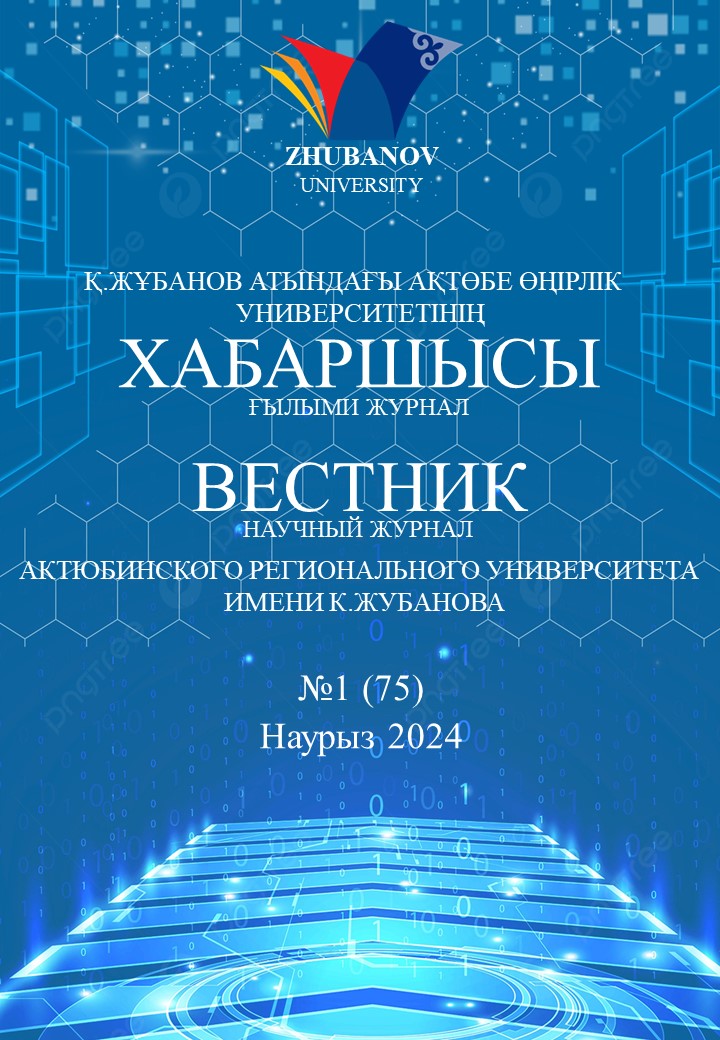Changing and updating time every day have an enormous impact on populationsway of thinking, psyche and actionsIt became possible to make changes and updates in the education system, focused on working with students. On different methods and techniques of teaching were found; there was also the possibility for future use by learners. Among the ones, one of them is the elaboration of functional and training literacy, and the formation of students. One of whom is the elaboration of functional literacy, as.
The article describes methods for improving the functional literacy of a student in chemistry. In each part of the lesson, the types of the method being carried out, the search for new information by students, an example of working with text are shown. Information about the method of applying laboratory work when searching for a new lesson topic is shown. On the basis of improving functional literacy in chemistry, an example of several tasks and types of tasks is given.
It can be seen that tasks can be simplified by means of multimedia tools. So that find out whether these methods are implemented, a special study was conducted for 4 classes. Two of them are experimental classes, and it is oriented on the elaboration and education of the childIn arrange to discover out whether these strategies are actualized, a extraordinary consider was conducted for 4 classes. Two of them are exploratory classes, and it is centered on the improvement and instruction of the child. In arrange to screen the increment in intrigue information, measurements were conducted and compared with past quarter. So that find out if the psychological climate has changed, a special survey was conducted and the results analyzed.
B.S. IMANGALIYEVA
Aktobe Regional University named after K. Zhubanov, Candidate of Pedagogical Sciences, Associate Professor
nur_b_70@mail.ru https://orcid.org/0000-0002-3121-3135
T.E. ASKAR
Master's student, Aktobe Regional University named after K. Zhubanov
askartolganay01@mail.ru https://orcid.org/0009-0005-6318-6644
S.N. ERMUKHANBETOVA
Master's student, Aktobe Regional University named after K. Zhubanov
125aktobe@gmail.com https://orcid.org/0000-0002-9670-8710
- Торсықбаева Б.Б. Оқушылардың функционалдық сауаттылығын дамыту және даму деңгейін критериалды бағалау жүйесі арқылы өлшеуіш-тапсырмалар жинағы [Текст]: педагог кадрларға арналған дидактикалық оқыту құралдары / Торсықбаева Б.Б. - Астана: НЦПК Өрлеу, 2004. -250 б.
- Байғұлова, А. Д. Қазақстандық оқушылардың оқу сауаттылығын қалыптастыру (PISA және PIRLS зерттеулері мысалында)/Байғұлова А.Д.//12 жылдық білім беру=12-летнее образование.-2015.- № 3.-Б.21-26.
- Egorov V.V.,2021 - General chemistry: St. Petersburg: Lan, 2021.-192s.
- Goncharov E.G., and others.,2017 - A short course in theoretical inorganic chemistry. St. Petersburg; 2017.-464p.
- Суртаева Н.Н. Педагогические технологии: учебное пособие для бакалавриата и магистратуры / Н. Н. Суртаева. – М.: Издательство Юрайт, 2019. – 250 с.
- Ахметов, М. А. Стратегии успешного изучения химии в школе / М. А. Ахметов. – М. : Дрофа, 2014. – 95 с.
- Akhmetov N.S.,2021 - General and inorganic chemistry. - M.: Krasnodar, 2021.-744p.
- Оқушылардың функционалдық сауаттылығын қалыптастырудың тиімді әдістері: әдістемелік құрал/Н.А.Даулетова – Атырау: «Өрлеу БАҰО» АҚ филилалы Атырау облысы бойынша педагогикалық қызметкерлердің біліктілігін арттыру институты, 2019.-80 б.
- Project-Based Learning In The Secondary Chemistry Classroom By Elizabeth L. Crane 2015.
- Problem Based Practical Activities. Alcohol detective Developed by Dr Catherine Smith, RSC School Teacher Fellow at the University of Leicester 2012.
- Мектеп оқушыларының функционалдық сауаттылығын қалыптастыру әдістемесі. Әдістемелік құрал. Астана: Ы. Алтынсарин атындағы Ұлттық білім академиясы, 2013. – 41 б.
- Glinka N.L. General chemistry: manual for graduate students. [Text]: Volume 3/N.L.Glinka,-27 edition. Almaty:TechSmith,2018.-248p.
- Нұрахметов Н.Н. Нәтижелі білім беру үшін функционалдық сауаттылықтар жүйесін қалыптастыру мәселесі. Өскемен, 2018 ж.
- Куксо Е.Н. Десять эффективных способов улучшения качества преподавания в школе. — М.: Национальный книжный центр, ИФ «Сентябрь», 2016.-192с.-(Библиотека журнала «Директор школы».) ISBN 978-5-88753-171-7 ISBN 978-5-4441-0219-0
- Мұғалімге арналған нұсқаулық. «Назарбаев Зияткерлік мектептері» ДББҰ Педагогикалық шеберлік орталығы, 2019 ж.
- Култуманова А.Ж. Международное исследование РISA: функциональная грамотность школьников //«Оқу әдебиеттерін әзірлеу, сараптама, aпробация, мониторинг жүргізу және басын шығару жүйесін ғылыми-әдістемелік қамтамасыз етуді жаңғырту» aтты Халықаралық ғылыми-практикалық конференцияның материалдары. – Aстана, 2013.
- Имангалиева Б.С., Сыдықова Г.Д.Факультативті курс – функционалды сауаттылық негізі. Абай атындағы ҚазҰПУ-ң Хабаршысы «Педагогика ғылымдары» сериясы, №1(77), 2023ж.;207-б., https://bulletinpedagogy.kaznpu.kz/index.php/ped/article/view/1832/736. DOI: https://doi.org/10.51889/1728-5496.2023.1.76.022
- Таубаева Ш.Т., Мақсұтова И.О. Дидактикадағы инновация: Оқу құралы/ Ш.Т. Таубаева, И.О. Мақсұтова–Алматы,2020–368 б.


